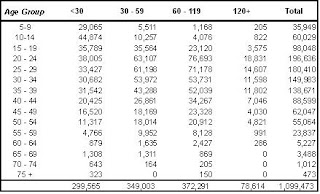With its chequered pattern, most people compared it to a tablecloth or tea towel. Indeed, the only sport’s uniform uglier than this is the Norwegian Olympic curling team’s pants.
Luckily, they improved the design…or not.
I mean, people already have difficulties believing that curling is a legitimate Olympic sport event—with the broom and its sweeping action. So it’s even harder to respect the athletes—or anyone!—wearing THAT kind of pants.
Anyway, back to Manchester United’s kit. According to Nike, its manufacturer, the chequered pattern called Gingham style is a tribute to the 19th century famous cotton mill industry which made Manchester one of the richest city in England, Europe even, during the industrial revolution. The cotton industry defined Manchester at that time. So thoroughly was the life in Manchester depended on cotton, it was colloquially known as Cottonopolis.
However, life was not that rosy for the workers of the cotton mills. The working condition was appalling, the usage of child labors was unchecked, and the state of the environment was disquieting. One of an eyewitness account on Manchester at that time:
A thick black smoke covers the city. The sun appears like a disc without any rays. In this semi-daylight 300,000 people work ceaselessly. A thousand noises rise amidst this unending damp and dark labyrinth...the footsteps of a busy crowd, the crunching wheels of machines, the shriek of steam from the boilers, the regular beat of looms, the heavy rumble of carts, these are the only noises from which you can never escape in these dark half-lit streets ~ Alexis de Tocqueville, Journeys to England and Ireland, 1835Into this kind of scenery that in November 1842 a young German man came into the city. His father was a co-owner of Ermen & Engels at Weaste, in Salford. He sent the young man to Manchester in the hope that he would leave his radicalism behind and started to learn business. Alas for the father, the workers’ working condition in Manchester seems to drive the young man more to radical socialism. Yes, he would spend the next 2 years studying business first hand, but he also wrote a book titled “the Condition of the Working Class in England” (1844) based on his exposure and observation of the workers’ condition. That, and later his introduction to Karl Marx was the basis of long productive years in building the foundation for Communist ideology. His name is Friedrich Engels.
Even today, the book is considered as “the most eloquent and powerful critique of society in early Victorian Manchester” [Roy Whitfield: The Double Life of Friedrich Engels, MRHR Summer 1988]. The book is important because it “was not merely a survey of working-class conditions, but [also] a general analysis of the evolution of industrial capitalism, of the social impact of the industrialization and it political and social consequences…” [Eric Hobsbawm: How To Change the World, Abacus London 2012]
One of his analysis is on the creation of the working class, and how the terrible working condition was in fact a systematic dehumanization imposed by the bourgeoisie class to create class discrimination. It is only through class struggle, fight against the bourgeoisie, the workers can find back their humanity and dignity. [Hobsbawm; idem]. This is one of the earliest attempt to apply Marxist method to the study of a society, and a basic framework that Marx and Engels would continuously use in their future works.
Later in his life, Engels benefitted considerably from the renewed contract in the Ermen & Engels partnership. He saw his income rose by almost 4 times due to that. This enabled him to live comfortably while dedicating his life to Communist movement. Also, using his wealth he would supporting his friend Karl Marx who was formally unemployed until the end of his life. This so called “Engels’ double life” and a historical study about his life especially during his time in Manchester can be read thoroughly in Whitfield’s paper here.
The circle is complete: industrial revolution has created both wealth and misery to humanity. The misery triggered the raise of Communism as an ideology, while the wealth provided Marx & Engels with resources to complete their works. Now, the Gingham pattern, the tribute to Manchester’s cotton industry those days, has made a comeback through Manchester United kit, made by Nike, the embodiment of global capitalism.
And for you fellow comrades, just throw away your old Guevara and retro CCCP’s hammer & sickle T-Shirts. To show your revolutionary spirits just wear the current Manchester United kit. After all, it’s also the embodiment of the misery of those Manchester’s cotton workers during the industrial revolution…
***








